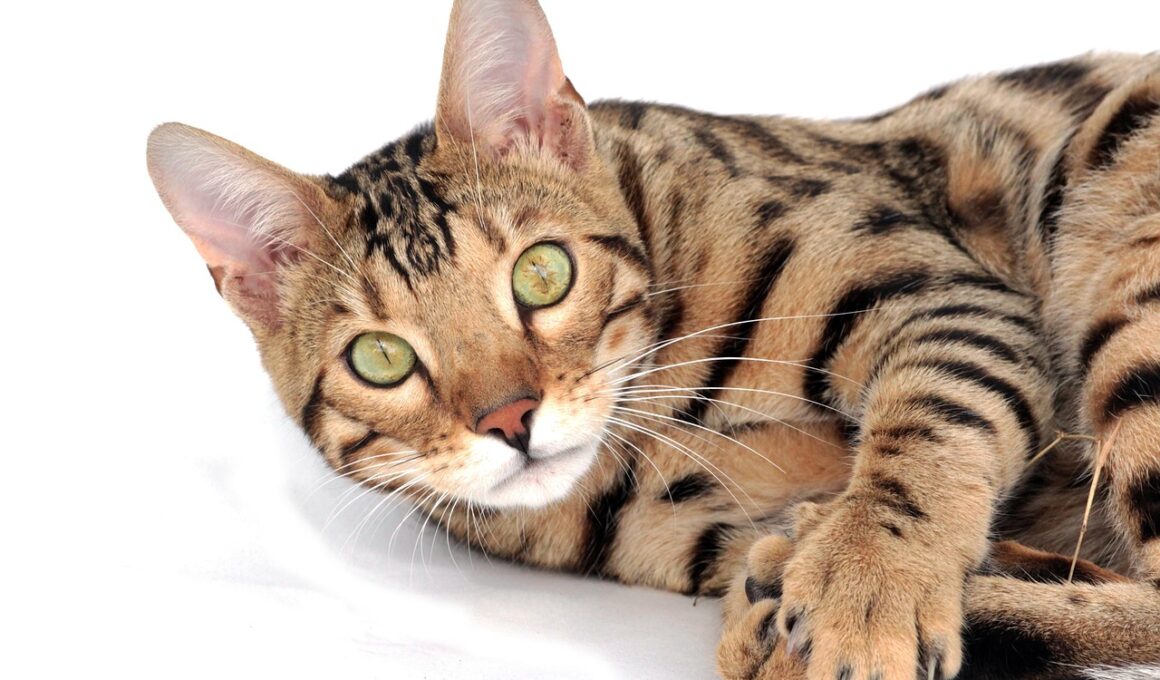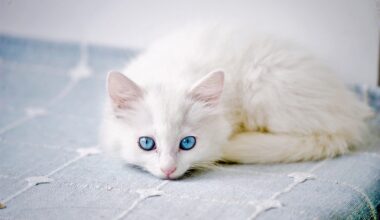Are Probiotics Safe for Kittens? What You Need to Know
When considering the safety of probiotics for kittens, it is essential to understand their developmental stage and health requirements. Kittens typically receive their initial beneficial bacteria through their mother’s milk during the first few weeks of life. This natural exposure to probiotics aids their digestive systems and bolsters their immunity. However, introducing additional probiotic supplements can be beneficial for kittens experiencing gastrointestinal issues. Typically, probiotic products designed for kittens are specially formulated to meet their needs. Always consult with a veterinarian before incorporating any supplement into your kitten’s diet. They can provide tailored advice based on your kitten’s specific health conditions and dietary requirements. Remember, not all probiotics are the same, and some may not be appropriate for young cats. Look for products that contain strains proven effective for pets, such as Lactobacillus or Bifidobacterium. Furthermore, ensure the product is from a reputable brand with a good safety record. A veterinarian’s guidance is vital in selecting the right probiotics, ensuring that safety remains a priority while benefiting from the potential health advantages for your kitten.
Probiotics can be particularly helpful in certain situations, such as after antibiotic treatments. These medications often disrupt the natural balance of bacteria in a kitten’s gut. Hence, a probiotic supplement can help restore that balance. The timing and dosage of administration are crucial, so your vet’s input is invaluable in this process. Choose a probiotic that is specially formulated for animals, specifically kittens, as their digestive systems differ from those of adult cats or other animals. In addition to promoting gut health, probiotics can improve nutrient absorption, which is vital as kittens are rapidly growing and developing. Some studies suggest they may aid in managing stress-related gastrointestinal upset, which is common with younger cats adjusting to new environments. Observations of behavioral changes in kittens may also indicate the need for probiotic intervention. Parents should also be vigilant about monitoring their kittens for any adverse reactions upon starting probiotics. If you notice unusual behaviors or symptoms, consult your veterinarian immediately. Ultimately, the goal is to support your kitten’s health optimally while minimizing any risk through informed decisions.
Understanding Probiotics
Probiotics are live microorganisms that, when administered in adequate amounts, confer health benefits to the host. In the case of kittens, probiotics primarily enhance the digestive system’s health and function. Their applications are extensive, and numerous studies are ongoing to determine their potential benefits. The most common strains used in feline probiotics belong to the Lactobacillus and Bifidobacterium species. These have been shown to positively impact gut health by inhibiting harmful bacteria and enhancing nutrient absorption. It’s essential for pet owners to distinguish between various probiotic products on the market. Not all probiotics are created equal, and effectiveness can vary based on the strain and its intended use. Moreover, the formulation must be suitable for young cats, as their needs differ significantly from those of adult cats. Additionally, while probiotics are generally considered safe, their administration should always be undertaken cautiously, particularly for those kittens with pre-existing health issues. Discuss reflecting on your kitten’s lifestyle and dietary habits with your veterinarian to determine the necessity of probiotics and the appropriate strains for their specific situation.
While probiotics can offer several benefits for kitten health, it’s vital to recognize their limitations as well. Probiotics are not a replacement for a balanced diet or appropriate veterinary care. Instead, they should be viewed as complimentary agents that bolster overall health and well-being. Ensuring your kitten receives a nutritious diet filled with essential vitamins and minerals is paramount for their development and vitality. Regular check-ups with a veterinarian should remain a priority to observe general health and detect potential issues early. In using probiotics, pet owners should also understand that individual kitten responses may vary. Not every kitten will react favorably to every type of probiotic. Thus, starting with small dosages and closely monitoring your kitten’s response is prudent. If any adverse effects occur, discontinue use and consult your veterinarian. Likewise, education about gut health is essential for responsible pet ownership. Understanding how the gut microbiome functions and its significance in your kitten’s health can lead to more informed choices regarding supplements and diet. Research and be proactive in making the best decisions for your kitten’s well-being.
Choosing the Right Probiotic
Choosing the right probiotic for your kitten can be overwhelming due to the many options available. It’s beneficial to seek products designed specifically for kittens or cats. Look for reputable brands that provide transparency regarding their formulations and the strains used. Additionally, consider probiotics with guaranteed potency to ensure that the live cultures will survive administratively. Formulation types vary, including powders, chewable tablets, and liquid drops. Depending on your kitten’s preferences, one form may be more acceptable than others. A lifelong impact on health often starts in childhood, so prioritizing quality matters. Always read the labels carefully; look for key information regarding strain specificity and usability. Furthermore, terms like ‘shelf-stable’ or ‘free from harmful additives’ should guide your purchase decisions. These factors can significantly affect the efficacy of probiotic supplements. When introducing a new probiotic, consistency and routine are crucial. Gradually integrate it into their diet over several days to minimize any potential digestive upset. Consult your veterinarian before making a final decision to ensure you have the best options aligned with your kitten’s needs.
The importance of gut health cannot be overemphasized. An imbalance of gut flora can lead to various issues such as diarrhea, constipation, and more severe gastrointestinal problems. Kittens, having a delicate digestive system, are particularly vulnerable to these disturbances. Probiotics can play a role in maintaining this balance, promoting the growth of beneficial bacteria essential for digestion. Additionally, a well-functioning gut can positively affect the immune system, so there are multidimensional benefits at play here. Besides supplementation, feeding high-quality cat food can also help maintain gut health. The right mix of nutrients and fibers can drastically reduce the likelihood of digestive issues. Several commercial cat food companies are now producing specially formulated diets that include prebiotics and probiotics, providing a two-in-one solution to gut health. These diets could offer convenient pathways to incorporate beneficial bacteria without additional products. Always monitor your kitten’s reaction to dietary changes, whether introducing supplements or new food. Observing their reactions will provide essential information regarding their health and will help inform future dietary choices and probiotic usage.
Conclusion
In conclusion, probiotics can be a safe and effective addition to a kitten’s diet when used correctly. The shared goal between pet owners and veterinarians should be the healthy development of kittens. Enhanced digestive health can lead to other health benefits, such as improved immune response and overall vitality. However, it’s vital to take safety precautions before introducing any supplement. Understanding how specific probiotic strains can affect your kitten’s body is essential for selecting the appropriate product. Each kitten is unique, and what works for one may not work for another, hence guidance from your veterinarian is indispensable. Moreover, educating yourself on the role of gut health contributes substantially to informed decision-making regarding your kitten’s nutrition. Incorporation of high-quality, well-rounded diets combined with appropriate probiotic use can create a harmonious balance in your kitten’s overall health. Always prioritize your kitten’s safety and well-being, navigating these decisions with caution and an informed perspective. By fostering good health practices from an early age, you can support a lifetime of health and happiness for your beloved feline companion.
In summary, while probiotics offer significant benefits, they should be approached with care. Consult your veterinarian to ensure that any supplement used aligns with your kitten’s unique health profile.


